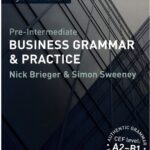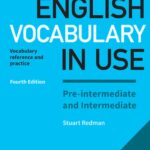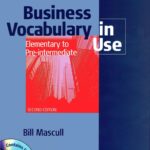Solutions – Pre-intermediate. Student Book, Workbook, Wordlist and Teacher’s Book
Solutions – Pre-intermediate

There are 10 units in each level of Solutions. Each unit follows the same structure making it easy to follow for both teachers and students:
- A: Vocabulary and Listening Vocabulary and Listening lessons introduce the main topic of the unit. Vocabulary is presented in lexical sets and reinforced through the listening texts. The lesson always ends with an achievable and supported speaking opportunity to use the new words in a personalized way.
- B: Grammar New grammar points are presented in context in a short reading text at the start of each page. Students work out the rules in guide activities, helping them develop a deeper understanding of the grammar rules. Each lesson gradually builds to a speaking task so that students have an opportunity to use what they have learnt.
- C: Culture Culture lessons always include a reading text which provides cultural information about Britain, the USA or another English-speaking country. Students are asked to give their own opinions on the topic and there is a challenge! Box on the corresponding Workbook page which asks students to find out about their own culture. Culture pages always include both reading and listening practice.
- D: Grammar Lesson D is the second grammar page for the unit and it presents the second main grammar point. It follows the same pattern as the first grammar page with the grammar first presented in context in the short reading text and then summarized in the Learn this box. The lesson ends with a speaking task giving students the opportunity to personalise the language they have learnt.
- E: Reading This lesson stretches over a full double page spread and contains the main reading text for the unit. The texts are always interesting and relevant to teenagers and they recycle the main grammar points from lessons B and D.
- F: Speaking The speaking page gives students the opportunity to practice all the grammar and vocabulary they have learnt in the unit so far. The approach to speaking is very supportive and begins with a model text that students listen to and complete. This is followed by lots of controlled practice until the final task in the lesson which is a more open task where students can personalise the language. Weaker students can use the model to complete the task while stronger students can make up their own dialogues.
- G: Writing The final lesson in every unit is the Writing lesson. This lesson really develops students writing skills. It always begins with a model text which is followed by a writing strategy box which guide students through the process of creating their own text. This is then followed by the writing task. Students first discuss their ideas in pairs and then they work through the writing task. There is a handy check your work box at the end of the task to encourage students to look back over their work and ensure they have followed the guide.
- Language Review and Skills Round-Up At the end of every even numbered unit there is a Language Review and Skills Round-up spread. The language review includes exercises focusing on vocabulary, grammar and functions from the preceding two units. The marks available on the page always total 30 so it is easy to monitor progress through the book. The Skills Round-up page covers all the preceding units of the book. The material is centred around a girl called Anna, who is living and working in Britain. The lesson includes practice of all four skills.
- Get Ready for your Exam At the end of every odd numbered unit there is a Get Ready For your Exam spread which prepares students for the FCE style school leaving exam. These pages include exam tasks for listening, reading, speaking, writing and use of English. Each exam lesson includes activities to prepare students for typical exam tasks and provide them with the language and skills they need to do them successfully. The pages relate to the topics of the previous two units. Further exam preparation is available in the workbook.
- Grammar Builder and Vocabulary Builder There is also a Grammar Builder and Reference section and a Vocabulary Builder section at the back of the Student’s Book. These sections provide extra support and practice for each of the grammar points covered in the Student’s Book. The Vocabulary Builder section helps students extend their vocabulary around the topics covered in the main units. This makes great extension material for stronger students or fast finishers.

BROWSE THE EBOOK
Solutions – Pre-intermediate – Student book

Solutions – Pre-intermediate – Workbook
IF YOU ARE INTERESTED IN BUYING THIS BOOK, CLICK ON THE BUTTON BELOW

Solutions – Pre-intermediate – Teacher’s Book
IF YOU ARE INTERESTED IN BUYING THIS BOOK, CLICK ON THE BUTTON BELOW

Wordlist

WE DO NOT SUPPORT COPYRIGHT DISPUTES – USE ONLY FOR TEACHING AND LEARNING PURPOSES





